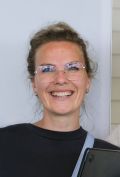Co/Lab
Hungry for Change
What if… we redesigned our food environment so the healthiest and most sustainable choice is the one you can’t resist?
Every day, you make choices about what you eat. Often without even realising it. You dash for the train, grab a quick lunch, or pick something up at the petrol station. Temptation is everywhere: that hot cheese pastry practically calling your name, the irresistible smell of chips, or that giant cookie by the till. The apple next to the sandwiches? That usually stays untouched.
The issue isn’t that we don’t know what’s healthy. It’s that knowing isn’t the same as doing — especially in a world full of clever temptations. Our food environment is designed to be fast, convenient, and enticing. Just not usually in a healthy direction.
You might think you’re the one making the choice, but often that choice has already been influenced before you’ve even considered it. Just like the algorithms shaping your Instagram or Spotify feed. They decide what you see or hear. And it’s the same in the supermarket, at work, or at school. That environment affects your body, your energy levels, and ultimately your health.
Healthcare professionals are starting to sound the alarm. More and more doctors — including Caring Doctors — are witnessing first-hand how an unhealthy environment leads to chronic diseases, increasing the demand for care and driving up healthcare costs. Not because people are ignorant or unwilling but because the system makes it incredibly hard to make the right choices.
As long as we keep treating the symptoms — with diets, Ozempic, surgery, or even well-intentioned campaigns — the context remains unchanged. If we truly want to make a difference, we need to take a closer look at the environment itself. What if healthy and sustainable food wasn’t just possible, but also the easiest and most appealing choice?
That’s exactly what we’re working on in Co/Lab: Hungry for Change. In collaboration with organisations such as Rabobank, the Ministry of the Interior and Kingdom Relations (pilot Duurzame CAO Rijk), S+T+ARTS Hungry EcoCities, and the Province of North Brabant, we’re exploring how design can help reshape that environment — and how we can respond to it differently. Each partner brings their own role and perspective to the table.
Design, test and learn together with the goal: supported solutions that are scalable within the government.
This Co/Lab provides an ideal platform to showcase how our projects contribute to a future where digital technologies and AI applications lead to less food waste, more sustainable value chains and more ethical food consumption.
*S+T+ARTS Hungry EcoCities has received funding from the European Union’s Horizon Europe research and innovation programme under grant agreement 101069990. It is part of the S+T+ARTS programme.
The process
This Co/Lab is shaped under the guidance of Barbara Vos and INK Social Design. The partner organisations contribute their expertise, with Barbara Vos safeguarding the narrative and forging connections for broader impact, while Ink Social Design leads the creative process. By placing a design-led approach at the heart of the project, we create space for new perspectives and actions. Over the course of three collaborative design sessions, we explore concrete opportunity areas that give rise to targeted interventions aligned with the chosen direction. In doing so, we work together towards a public presentation during Dutch Design Week, while equipping each partner with practical tools to address the issue within their own context.
Lab Manager

Marleen Remmen
Questions? Contact the lab manager via mail.




